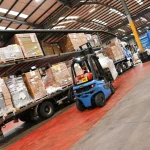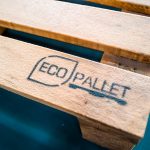
The Eco-Advantage: Why Heat-Treated Pallets Align with Kenya’s Green Economy Goals
Introduction
Kenya is on a mission to build a greener, more sustainable economy. With increasing environmental concerns and the need for eco-friendly business practices, industries are shifting towards solutions that align with green economy goals. One such innovation is the use of heat-treated pallets—a sustainable alternative to traditional chemically treated wooden pallets. These pallets are not only environmentally friendly but also improve trade efficiency, protect forests, and ensure safer handling of goods.
But what exactly makes heat-treated pallets an eco-friendly choice? How do they fit into Kenya’s green economic strategies? Let’s explore the eco-advantage of heat-treated pallets and why they are the future of sustainable logistics in Kenya.
Understanding Heat-Treated Pallets
What Are Heat-Treated Pallets?
Heat-treated pallets are wooden pallets that undergo a high-temperature treatment process instead of chemical fumigation. The goal is to eliminate pests, bacteria, and fungi that could spread through international trade.
The Process of Heat Treatment
- Pallets are placed in a kiln or chamber and heated to a core temperature of at least 56°C (132.8°F) for 30 minutes.
- This process kills any invasive species without using chemicals.
- The pallets are then stamped with an ISPM-15 mark, certifying them for international shipping.
Key Differences Between Heat-Treated and Chemically Treated Pallets
| Feature | Heat-Treated Pallets | Chemically Treated Pallets |
|---|---|---|
| Treatment Method | Heated to eliminate pests | Fumigated with methyl bromide |
| Environmental Impact | Eco-friendly, no chemicals | Harmful to environment |
| Health & Safety | Safe for food and pharmaceuticals | Toxic residues may remain |
| Compliance | Meets ISPM-15 standards | Some restrictions in global trade |
With chemical treatment raising environmental and health concerns, Kenya has the opportunity to adopt heat-treated pallets as a sustainable alternative while staying competitive in international trade.
Kenya’s Green Economy Goals and Sustainable Development
Kenya has been a leader in Africa’s green economy transition, with initiatives focused on sustainable agriculture, renewable energy, and eco-friendly industrial practices. The adoption of heat-treated pallets aligns with these national objectives in multiple ways:
- Reducing reliance on harmful chemicals in logistics and supply chains
- Encouraging responsible forestry practices to combat deforestation
- Supporting Kenya’s goal to reduce carbon emissions and improve air quality
- Boosting eco-friendly businesses and exports, strengthening economic resilience
By integrating heat-treated pallets into Kenya’s logistics sector, businesses can contribute to a greener supply chain, benefiting both the environment and the economy.
Environmental Benefits of Heat-Treated Pallets
One of the biggest advantages of heat-treated pallets is their positive impact on the environment.
1. Reduction in Chemical Usage and Pollution
- Traditional pallets require fumigation with methyl bromide, a toxic pesticide that depletes the ozone layer.
- Heat-treated pallets eliminate the need for chemicals, making them a cleaner and safer option.
2. Minimizing Deforestation and Promoting Responsible Timber Use
- The heat-treatment process extends the lifespan of wooden pallets, reducing the need for constant replacement.
- This helps in conserving forests and reducing illegal logging, a major environmental issue in Kenya.
3. Contribution to Waste Reduction and Recycling
- Heat-treated pallets are fully recyclable, reducing landfill waste.
- They can be repurposed into furniture, biofuel, or construction materials, supporting Kenya’s circular economy efforts.
Economic and Trade Advantages
Beyond environmental benefits, heat-treated pallets also offer significant economic advantages.
1. Compliance with International Shipping Regulations (ISPM-15)
- Many countries have strict sanitation standards for wooden packaging materials.
- Heat-treated pallets meet ISPM-15 requirements, allowing Kenyan businesses to export goods without trade restrictions.
2. Enhancing Kenya’s Export Potential
- With agriculture and horticulture being key exports, using heat-treated pallets ensures hassle-free international trade.
- Global buyers increasingly demand eco-friendly packaging solutions, making Kenyan exports more attractive.
3. Cost-Effectiveness and Long-Term Financial Benefits
- Although the initial cost of heat treatment is slightly higher, the durability and reusability of these pallets make them a cost-effective solution.
- Businesses save money on replacements and compliance issues, boosting profitability.
Health and Safety Considerations
One of the biggest concerns in logistics and supply chains is ensuring the health and safety of workers, consumers, and the environment. Heat-treated pallets contribute significantly to safer handling and transportation of goods.
1. Elimination of Harmful Chemicals in Logistics
- Unlike chemically treated pallets, which rely on methyl bromide fumigation, heat-treated pallets undergo a natural, non-toxic process.
- This eliminates chemical residues, reducing risks associated with exposure to toxic substances.
2. Protection of Workers Handling Pallets
- Warehouse workers, truck drivers, and handlers are frequently exposed to wooden pallets.
- With heat-treated pallets, workers are not exposed to toxic fumigation chemicals, leading to a healthier work environment.
3. Improved Hygiene and Food Safety Compliance
- Many industries, including food and pharmaceuticals, require strict hygiene standards.
- Heat-treated pallets prevent fungal and bacterial contamination, ensuring products remain safe for human consumption.
- Kenya’s growing fresh produce exports (tea, coffee, flowers, and vegetables) benefit greatly from the safety advantages of heat-treated pallets.
Supporting Kenya’s Timber Industry
The shift to heat-treated pallets does not only benefit the environment but also supports Kenya’s local timber industry by encouraging sustainable practices and boosting job creation.
1. Encouraging Responsible Forestry Practices
- The growing demand for sustainable wood packaging incentivizes responsible timber harvesting.
- Forestry businesses are adopting better forest management strategies, ensuring long-term timber availability.
2. Creating Jobs in Sustainable Wood Processing
- The heat-treatment process requires skilled workers, leading to employment opportunities in sawmills and wood treatment facilities.
- As businesses transition to eco-friendly packaging, new job roles emerge in quality control, logistics, and manufacturing.
3. Promoting Innovation in Eco-Friendly Logistics
- With a rising focus on sustainability, Kenya has an opportunity to lead in green logistics innovations.
- Research and development in recyclable, reusable, and biodegradable pallets are opening up new market opportunities.
By investing in sustainable pallet production, Kenya strengthens both its economy and environmental conservation efforts.
Challenges and Barriers to Adoption
Despite the numerous advantages of heat-treated pallets, there are still challenges preventing widespread adoption in Kenya.
1. Initial Costs and Infrastructure Requirements
- Heat-treated pallets require kiln facilities and energy sources, which involve initial investment.
- Small and medium-sized enterprises (SMEs) may struggle with the cost of heat treatment equipment.
2. Awareness and Education Gaps
- Many businesses and logistics companies lack awareness about the benefits of heat-treated pallets.
- Training and educational programs are necessary to encourage adoption and highlight long-term cost benefits.
3. Policy and Regulatory Hurdles
- While Kenya has green economy initiatives, specific policies supporting heat-treated pallet adoption are still limited.
- More government incentives are needed to help businesses transition smoothly.
Addressing these barriers will require collaboration between the private sector, government, and environmental organizations.
Government and Private Sector Initiatives
To promote sustainable supply chains, both the Kenyan government and private enterprises are taking steps toward the adoption of heat-treated pallets.
1. Policies Supporting Sustainable Pallet Manufacturing
- Kenya’s forest conservation policies encourage sustainable timber harvesting, indirectly supporting the shift to heat-treated pallets.
- Government agencies can introduce tax incentives for businesses investing in heat-treatment technology.
2. Incentives for Businesses Adopting Heat-Treated Pallets
- Providing subsidized equipment for SMEs can encourage wider adoption.
- Certification programs can help businesses comply with international shipping standards, boosting trade opportunities.
3. Collaborations Between Industries and Environmental Organizations
- Public-private partnerships can drive awareness campaigns and promote eco-friendly logistics solutions.
- Research institutions can assist in developing cost-effective heat-treatment solutions for Kenyan businesses.
Encouraging stronger partnerships will ensure a smooth transition to sustainable pallet usage in Kenya’s logistics sector.
Future Outlook: A Sustainable Supply Chain for Kenya
The future of Kenya’s logistics industry is undeniably green, and heat-treated pallets are set to play a major role in shaping an eco-friendly supply chain.
1. Emerging Trends in Eco-Friendly Packaging and Logistics
- Businesses are shifting to biodegradable, recyclable, and sustainable packaging solutions.
- Innovations in pallet recycling and alternative materials (e.g., bamboo pallets) are gaining traction.
2. Innovations in Pallet Recycling and Reuse
- Heat-treated pallets are more durable, meaning they can be used multiple times before disposal.
- Recycling old pallets into furniture, biofuel, or repurposed materials aligns with Kenya’s circular economy strategy.
3. The Role of Heat-Treated Pallets in a Circular Economy
- Kenya’s vision for a waste-free economy aligns perfectly with the reusability and sustainability of heat-treated pallets.
- By investing in green supply chain practices, businesses can reduce their carbon footprint and improve long-term sustainability.
With the right policies, incentives, and innovations, Kenya can lead the way in Africa’s eco-friendly logistics transformation.
Conclusion
Heat-treated pallets offer a win-win solution for Kenya’s logistics industry and environmental goals. By eliminating chemical fumigation, reducing deforestation, and supporting international trade, these pallets align perfectly with Kenya’s green economy vision.
As more businesses and policymakers embrace sustainable logistics, heat-treated pallets will become a standard in eco-friendly supply chains. The journey toward a greener Kenya starts with simple, impactful changes—like adopting sustainable pallet solutions.
Are you in the logistics industry? Now is the time to switch to heat-treated pallets and contribute to a cleaner, healthier future for Kenya!
FAQs
1. Why are heat-treated pallets preferred over chemically treated pallets?
Heat-treated pallets eliminate the use of harmful chemicals, making them safer for the environment, workers, and consumers. They also comply with global trade regulations and have a longer lifespan.
2. How do heat-treated pallets support Kenya’s green economy?
They reduce deforestation, minimize chemical pollution, support sustainable forestry practices, and boost eco-friendly trade opportunities for Kenya.
3. Are heat-treated pallets more expensive than traditional ones?
The initial cost may be slightly higher due to the heat-treatment process, but they are more durable, reusable, and cost-effective in the long run.
4. What industries benefit most from heat-treated pallets?
Industries like agriculture, pharmaceuticals, food exports, and logistics benefit from the hygienic and durable nature of heat-treated pallets.
5. What is the future of sustainable pallets in Kenya?
Kenya is moving towards greener logistics solutions, and heat-treated pallets will play a crucial role in reducing waste, improving trade efficiency, and supporting sustainable business practices.





Add a comment